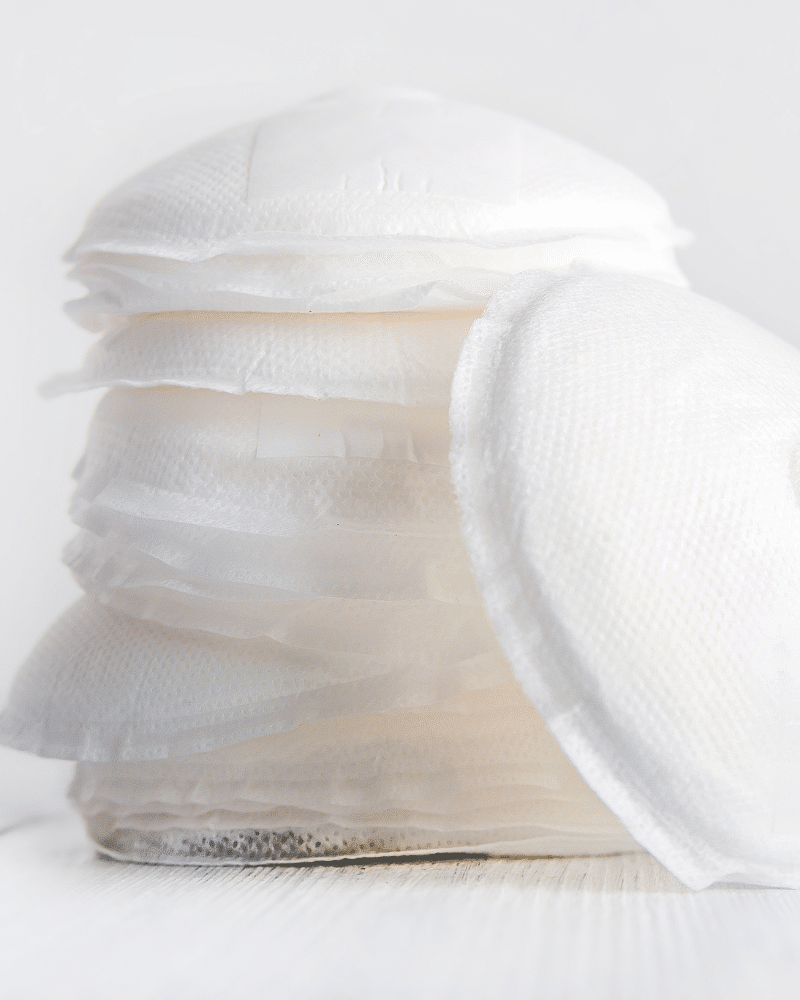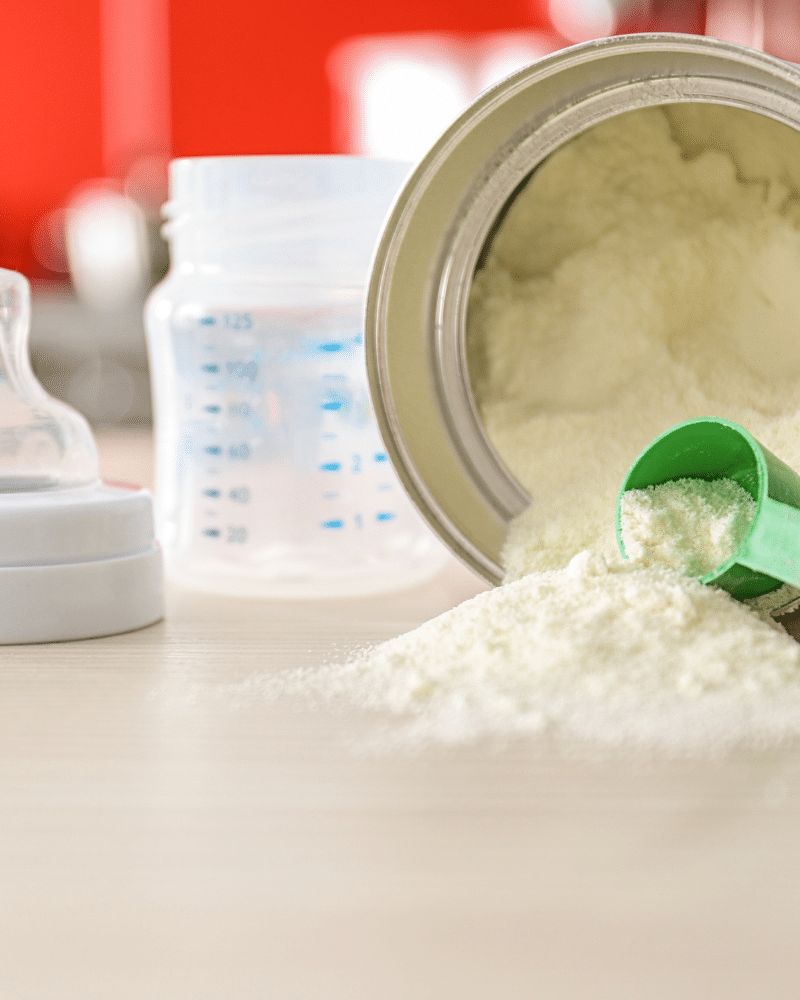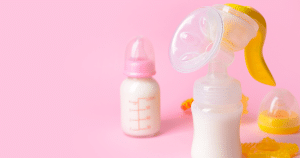When does breastfeeding get easier?
Breastfeeding is a beautiful thing, but that doesn’t mean that it works for everybody. Some women can struggle with breastfeeding, and for others, it can be much more straightforward. In this article, we’re answering the question, when does breastfeeding get easier?
This article includes:
- How does breastfeeding work?
- What challenges may I face with breastfeeding?
- When does breastfeeding get easier?
- When to seek advice for breastfeeding
- Tips for breastfeeding your baby
If it’s your first baby, you’ve probably spent a lot of time hoping that breastfeeding will work for you both. If it’s your second baby, you may have felt more relaxed about it. At the end of the day, breastfeeding is a skill for you and your baby to learn.
Before leaving the hospital, you should be given some advice on breastfeeding. The medical team will try to assist you with positioning to ensure both you and the baby are comfortable. Pumping your breastmilk is also an option if your baby struggles to breastfeed. A healthcare professional will assist you with pumping your breast milk supply.
Many women are advised to learn about breastfeeding during pregnancy. This can give you an idea of what’s to come. Some women find antenatal classes useful during pregnancy; many of these will provide information on breastfeeding.
How does breastfeeding work?
Throughout your pregnancy, your breasts may have enlarged and hurt a bit too, initially. This is your body preparing for the breastfeeding journey.
For some women, the leaking of the breasts can occur weeks before the baby is born. You may need to wear breast pads. This is totally normal and just means your body and milk ducts are preparing.
This early-stage milk is referred to as colostrum. You’ll continue to produce colostrum until a few days after giving birth. This type of milk supply looks different to how it will in the future. Colostrum is typically yellow, and your baby won’t need much of it. After a few days, your body will produce more mature breast milk, which will be white or slightly yellow in colour.
When babies breastfeed, it triggers a response for the breast to produce more milk. This is why the more you breastfeed, the more milk you will produce. After you finish breastfeeding, you may notice the production takes a few days to stop. However, some women still notice milk production weeks after. Find out: can you refreeze breast milk?

What challenges may I face with breastfeeding?
Latching issues
One of the most common challenges people face with breast feeding is the process of the baby latching on. You are advised to hold the baby close to the nipple and allow their head to tip slightly. This is a great starting position for latching on.
It’s a real skill for your baby to learn to latch on, but it’s important if you want to breastfeed. Some women experience cracked nipples due to breastfeeding, this can be a result of the baby not latching on fully. A good latch can reduce the risk of sore nipples. Speak to a professional about nipple pain, they may suggest a nipple cream. Some women experience blocked milk ducts, find out more about – will a clogged milk duct eventually dry up?
Knowing when your baby is hungry
Sometimes it can be challenging to create a feeding schedule, and with a newborn, you’re better off feeding whenever they want to. In the first few days, most babies will feed little and often. This is because the colostrum is so rich.
When you start producing more mature milk, your baby will breastfeed for longer and take in more milk. It’s recommended that you try to keep the baby feeding for longer. This allows them to access the best nutrients, which can come at the end of the feed.
There are some signs to look out for that indicate hunger. These include the following:
- Turning to look for the breast
- Putting hands in the mouth
- Becoming restless
- Baby’s mouth opening and closing
Don’t forget that you know your baby best! After a while, you’ll get to know all of their cues!

Reflux
Some babies are born with an immature digestive system, which will mature with age. In babies, it can lead to them spitting up clear liquid. Some babies may burp when they do this too. It can be worrying, and if it’s frequently happening, you should seek medical advice.
There are several reasons this can happen. For example, it could be the following:
- GERD
- Your baby is too full
- Sickness
- Distractions while feeding
- Acid reflux
Generally, you shouldn’t worry too much if your baby is gaining weight. However, you should mention it to your healthcare provider and monitor the symptoms. You should also keep an eye out for things like colic (symptoms include clenched fists, excessive crying, baby scratching their face, arched back, red face or high-pitched crying) and your baby having a tongue tie.
There may be periods, such as during a growth spurt, when your baby feeds more. This can be referred to as cluster feeding. When cluster feeding, it’s important to know the signs of when your baby has had enough milk.
When does breastfeeding get easier?
Many breastfeeding mamas find it’s the hardest at the beginning. This is completely normal and could be due to your baby learning how to latch on or because of milk production. Whatever the reason, the key takeaway is that it gets easier.
If you’re worried about your baby’s feeding, seek advice. You will have frequent visits from a health visitor who should be able to provide breastfeeding advice.
Breastfeeding gets easier after the first few weeks have passed. After around six weeks of breastfeeding, your baby will have learnt how to latch on. You’ll also have discovered the most comfortable position for you both when breastfeeding.
As we mentioned earlier, the more you breastfeed, the more milk you will produce. Some women find it useful to top up feeds using formula milk if their breastfed baby is still hungry.
Exclusive breastfeeding can be wonderful, but it doesn’t always become easy. A fed and happy baby is best, and if that means using formula feeding, then it’s fine! Don’t be hard on yourself, you’re doing a great job!

When to seek advice for breastfeeding
Breastfeeding can be tricky, and it’s important to ask for help when you need it. For example, if you experience the following, then you should seek advice.
- You are worried about not producing enough milk
- You are worried about the baby’s weight
- Your baby is crying all the time
- Your baby is sleeping all the time
- You have sore nipples and don’t look forward to breastfeeding
A healthcare professional can offer you the most helpful advice. They will work with you to ensure you and your baby are comfortable. It could be a simple fix because a different breastfeeding position works better for you. You may be referred to a lactation consultant to support your breastfeeding relationship with your baby.

Tips for breastfeeding your baby
Breastfeeding is a skill that is learned over time. Even though it feels challenging in the early days of your baby’s life, it will get easier as you both settle in.
- Try and breastfeed when both you and baby are relaxed
- Try different breastfeeding positions to see which works best for you
- Ensure that you are comfortable and supported before beginning
- Support the baby’s neck, shoulders and back so they can move their head to a comfortable position
- Bring the baby to the breast rather than the other way around
- Keep your baby’s head and body in line, this will help them with swallowing
- Believe in yourself and seek advice if you need it, it doesn’t mean you’re doing something wrong! Professionals will offer more tips to enable you to continue breastfeeding.
There are many benefits to breastfeeding. For example, breastfed babies get tailored nutrients, and it can help with bonding. However, that’s not to say that breastfeeding is the only way to bond with your newborn. In fact, skin-to-skin contact is one of the best ways to connect, and that can be done whenever
Breastfeeding can be a challenge, so you shouldn’t put yourself down about it. Ensuring that the baby is fed is the most important thing. Plus, feeding will get easier as you and your baby get used to it. Many babies and mums love breastfeeding, but it might not work for everyone.
We hope this article has been helpful and answered the question, when does breastfeeding get easier? Good luck with the rest of your breastfeeding journey!
Hey there, I’m Abigail!
In 2022, I graduated with a First Class Degree in Marketing and since then, I have been working as a blogger and Marketing Assistant. Before heading to university, I also achieved a BTEC in Children’s Play, Learning and Development.
I have been blogging for over four years and have covered many topics during this time. My focus has been on pregnancy, babies, sleep and baby name ideas.
I am passionate about learning new things and helping others. I hope that you find my blogs useful and informative. See you in the next article!


















